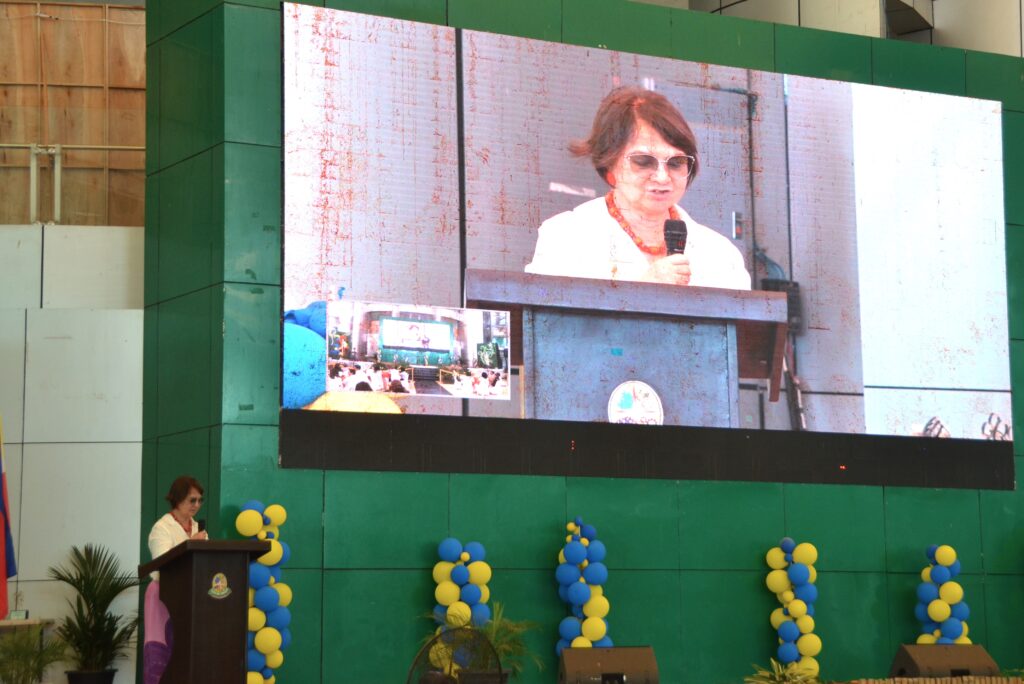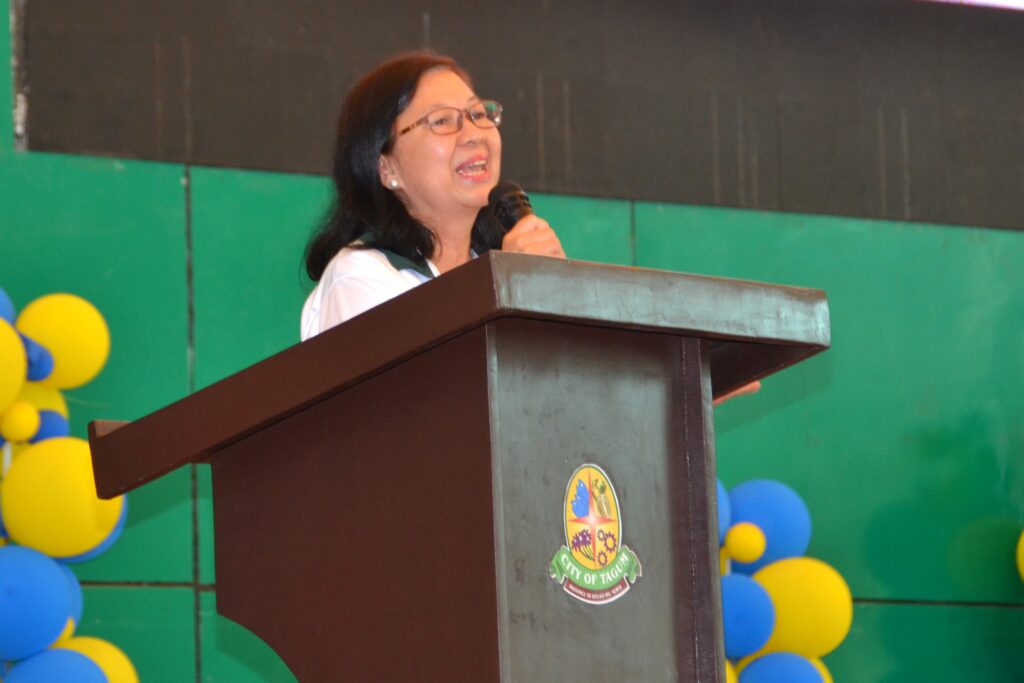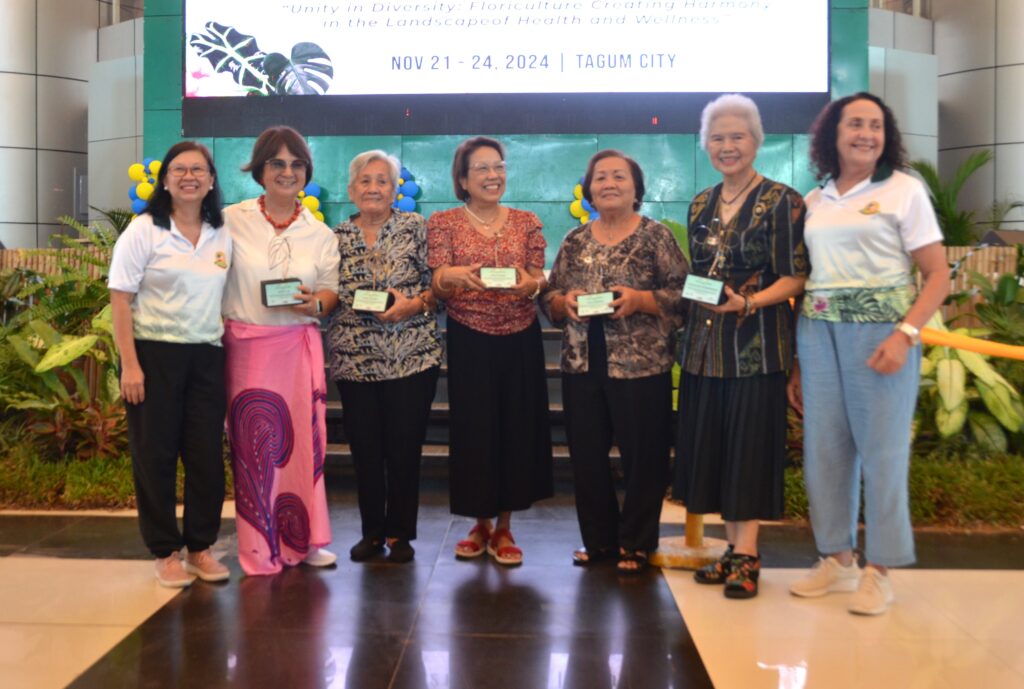Floriculture is still a blooming industry
Text and Photos by Henrylito D. Tacio
Some 9 international delegates (from Japan, Ecuador, Thailand, Malaysia, and Indonesia), 114 local traders, and more than 200 participants from across the Philippines attended the on-going Mindanao International Floriculture Congress held in Tagum City from November 21-24.
This was what Alma L. Uy, the chairperson of Tagum City Tourism Council, told the audience during the opening program of the congress.
Alma UY, Delivering her speech.

In her speech, the wife of the city mayor emphasized that the floriculture sector fosters sustainable practices and creates new opportunities.
“This event presents a unique opportunity to showcase our city’s commitment to excellence and our appreciation for rare ornamental plant business,” she said.
Although the keynote speaker, Francisco Tiu Laurel, Jr., the secretary of the Department of Agriculture, failed to attend, his speech was read by Ruel Gesmundo, of the Bureau of Plant Industry.
“The international floriculture congress 2024 provides us all with a venue to further strengthen partnerships and build new networks, here in the Philippines and abroad,” the agriculture secretary said.
“The theme, ‘Unity in Diversity: Floriculture Creating Harmony in the Landscape of Health and Wellness’ emphasizes the multiple roles of floriculture . Its significance in health and wellness cannot be emphasized enough.”
Evelyn G. Laviña, Delivering her speech.

The message of Macario D. Gonzaga, the regional executive director of the Department of Agriculture, was also read by Mary Ann Constantino.
“This congress serves as a pivotal platform for industry stakeholders to converge, share insights, and forge connections that drive the future of floriculture in our region and beyond,” said Gonzaga.
Over the years, the floriculture industry in Mindanao has seen remarkable growth, he said, adding that “it has become a vital contributor to the local economy, generating employment, boosting incomes, and supporting rural development.”
Evelyn G. Laviña, co-chairperson of the congress and former agriculture undersecretary, also urged the stakeholder of the floriculture industry to foster interdependence among themselves.
“Private stakeholders working together to help one another grow, diversify and achieve unity, referral, networking, cooperation, collaboration, and complementation,” said Laviña, the president of the Floriculture Industry of Davao, Inc. “That works with us and it will work with you all. With a strategic alliance and multi-sectoral approach, but the most important is having an organization strengthen the relationship to everyone.”
There was an ornamental plants and bonsai competition that was held during the congress.
The Honorees.

Six stakeholders from Mindanao, particularly Davao City, were given recognition for their contribution to the development of the floriculture industry. They were Charita Puentespina, Salvacion Leuenburger, Silva Alegria, Alma Uy, Elsa Galang, and Dyel Suarez.
The invited resource persons during the congress were Sappasiri Chaovinich, proprietor of Live with Plants in Bangkok, Thailand; Busayamas Udomphol, proprietor of Lanna Foliage Studio in Phrae, Thailand; and Sean William Salim, proprietor of Only Plants in Jakarta, Indonesia.
From the Philippines, the following were the invited speakers: Undersecretary Cheryl Marie Caballero of Department of Agriculture , Flor de Hasmin Bayo of Bureau of Plant – National Plant Quarantine Services Division, and Maria Carmela Toreja of Vilelas Farm.
The floriculture congress was sponsored by the City Government of Tagum through the initiatives of the Tagum City Tourism Arts and Culture Council Inc (TCTACCi) in partnership with the Floriculture Industry of Davao (FIDI) and Tagum City Floriculture Association (TCFA). Full support came from the Department of Agriculture, particularly from the High Value Crops Development Program (HVC), Bureau of Plant Industry (BPI), Agricultural Training Institute (ATI) and Agribusiness and Marketing Assistance Division (AMAD).
The partner was the Port of Davao of the Bureau of Customs.

